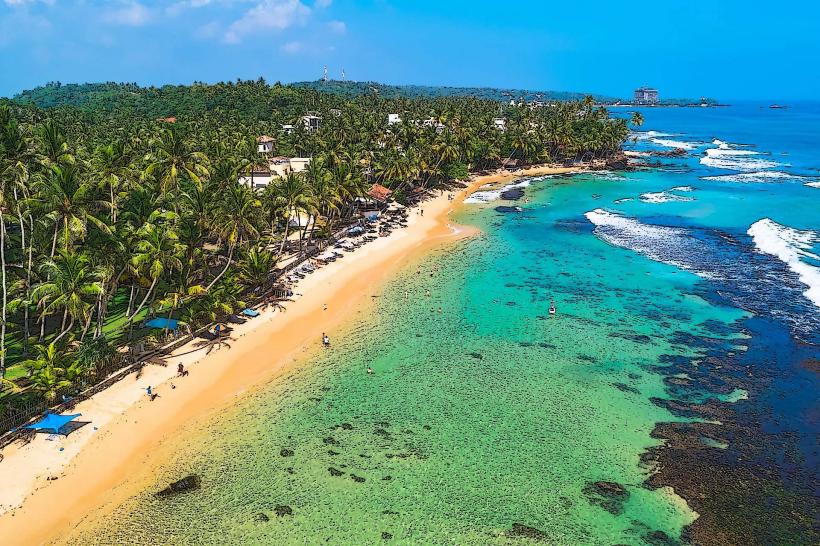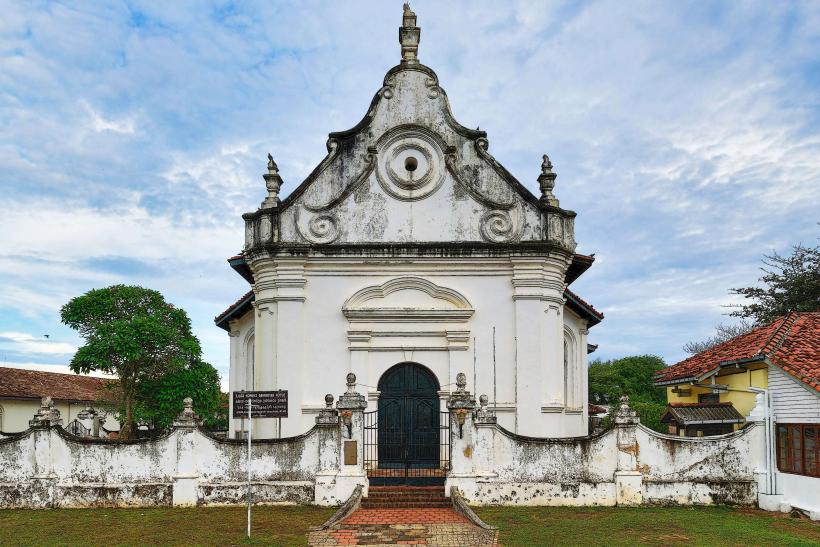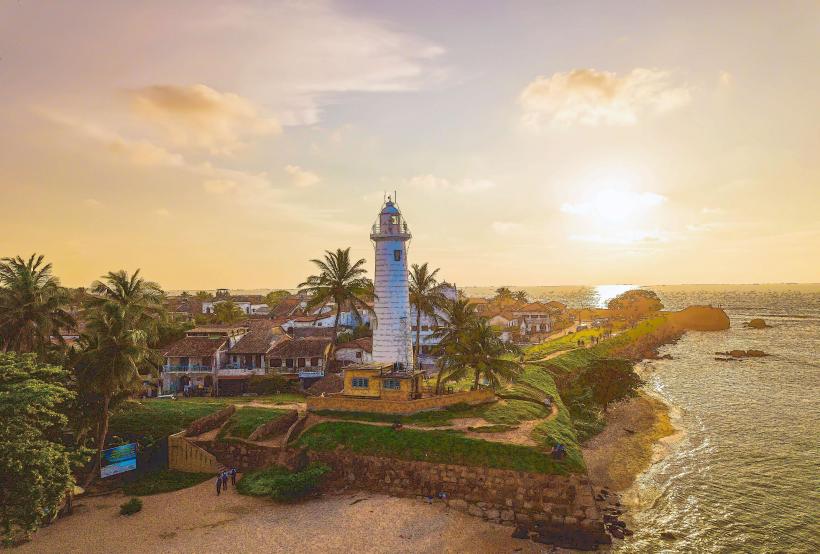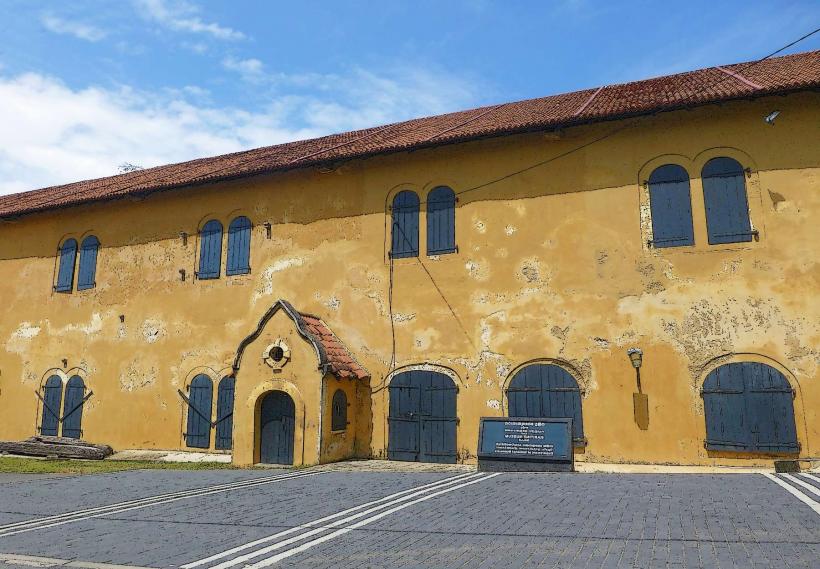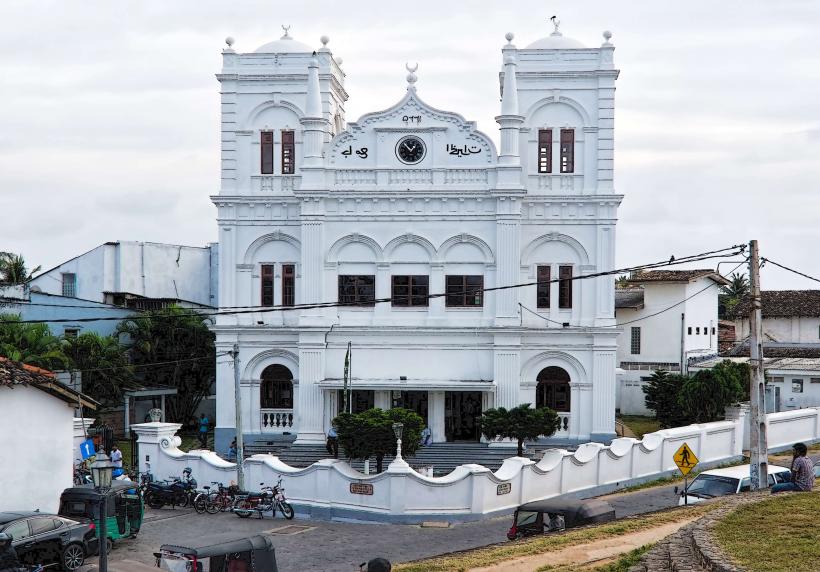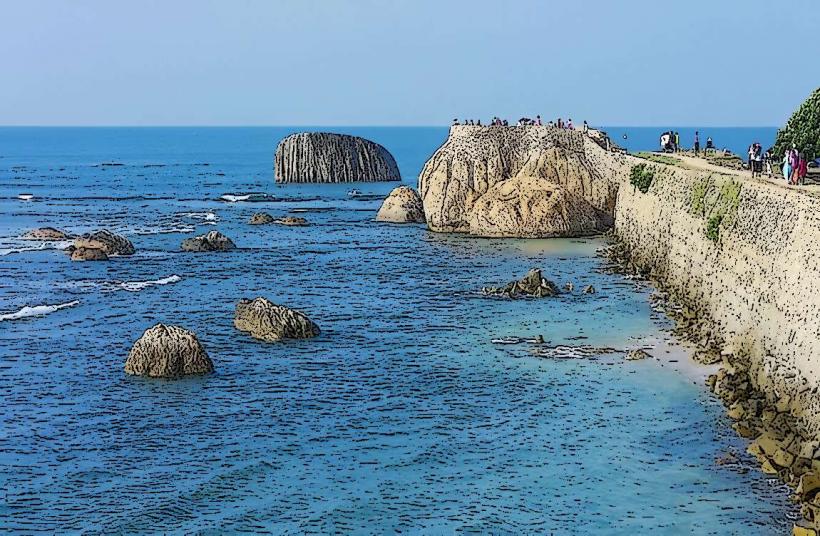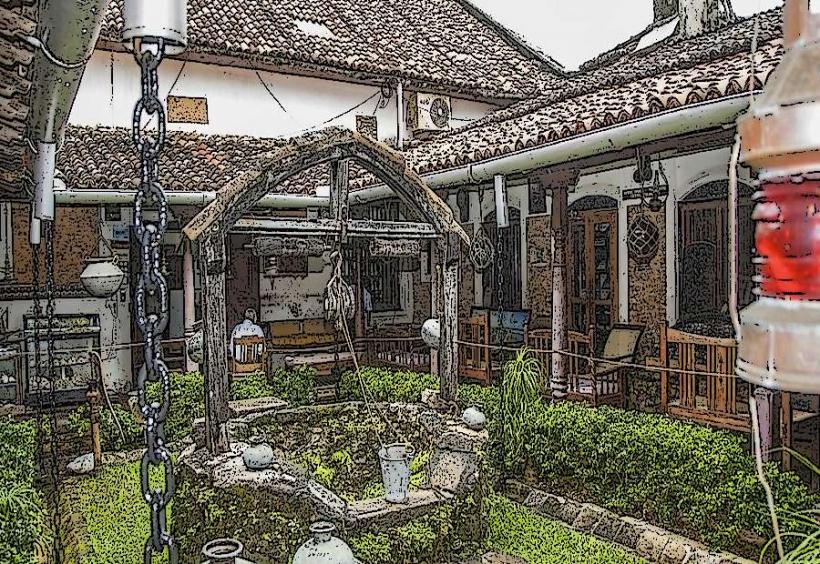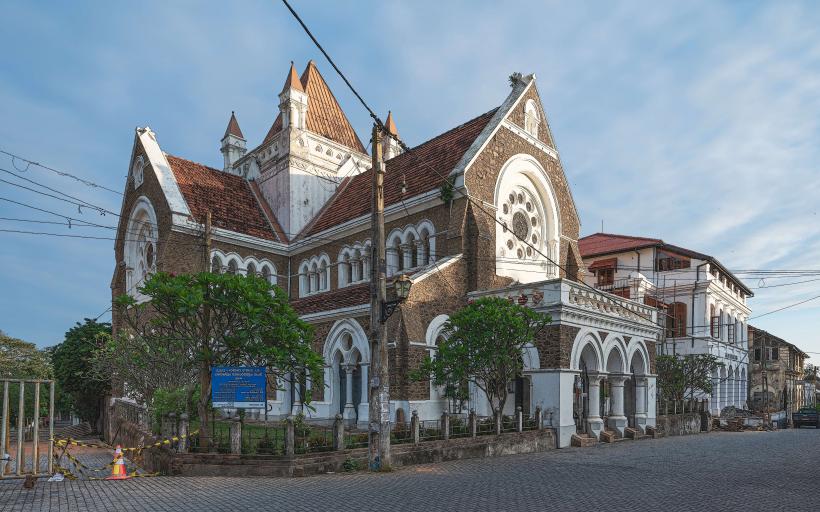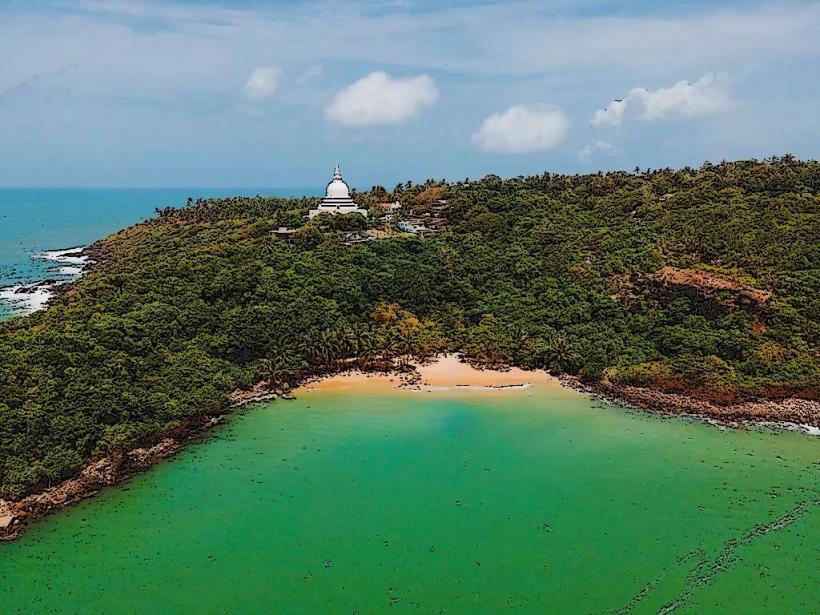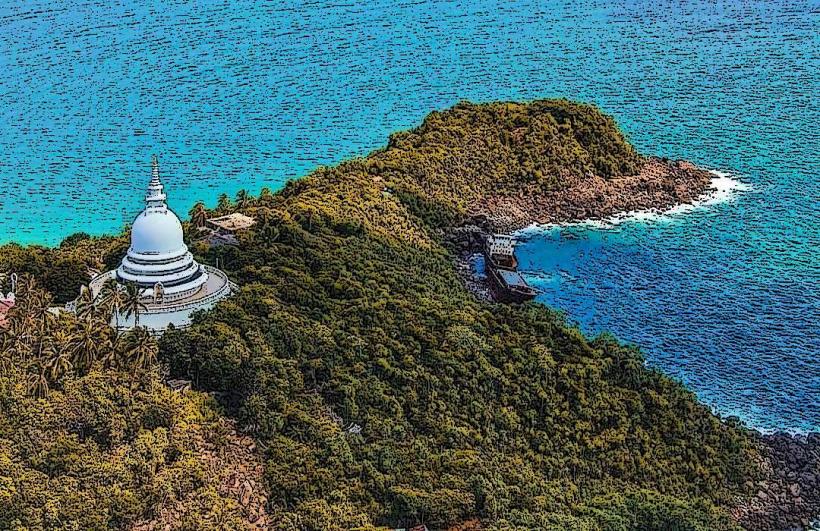Information
Landmark: Galle FortCity: Galle
Country: Sri Lanka
Continent: Asia
Galle Fort
The Galle Fort, also known as the Dutch Fort, is one of Sri Lanka's most iconic and historically significant landmarks. Located in the heart of the coastal city of Galle, this UNESCO World Heritage Site is a living testament to the island's colonial past, blending Portuguese, Dutch, and British architectural influences. The fort is a well-preserved, walled city that combines historical charm with modern vibrancy, featuring cobblestone streets, centuries-old buildings, boutique shops, and cultural landmarks.
Overview
- Location: Galle, Southern Province, Sri Lanka.
- Built in: Originally in 1588 by the Portuguese; extensively fortified by the Dutch in 1649.
- UNESCO Status: Declared a World Heritage Site in 1988.
- Area: Covers approximately 130 acres.
- Significance: A prime example of a European fortified city in South Asia, adapted to tropical conditions.
History
Portuguese Era (1588–1640):
- The fort was originally constructed by the Portuguese after they captured Galle in 1587.
- They built a basic fortification with a single rampart, bastions, and watchtowers.
Dutch Era (1640–1796):
- The Dutch captured Galle in 1640 and extensively expanded and fortified the fort.
- They added massive stone walls, bastions, and a network of drainage systems to protect it from both invaders and tropical monsoons.
British Era (1796–1948):
- Under British rule, the fort retained its prominence but underwent modifications, including the construction of administrative buildings and churches.
- The British also introduced Victorian architecture, blending it with the existing Dutch and Portuguese styles.
Key Features
Fort Walls and Bastions:
- The thick granite walls and 14 bastions are still intact, showcasing Dutch engineering prowess.
- Bastions such as Aurora, Sun, and Moon offer breathtaking views of the Indian Ocean.
Clock Tower:
- Built in 1883, this iconic structure stands tall at the northern entrance, commemorating Peter Daniel Anthonisz, a prominent local doctor.
Galle Lighthouse:
- Located on Point Utrecht Bastion, the Galle Lighthouse is the oldest lighthouse in Sri Lanka, originally built in 1848.
- It offers stunning views of the coastline and the fort.
Old Dutch Hospital:
- A historic building now repurposed as a shopping and dining precinct, offering boutique shops, cafes, and fine dining.
Groote Kerk (Dutch Reformed Church):
- Built in 1755, this church features colonial Dutch architecture and houses tombstones dating back to the 17th and 18th centuries.
National Maritime Museum:
- Housed in a former Dutch warehouse, the museum showcases the maritime history of Galle and the southern coast.
All Saints’ Church:
- A Gothic-style Anglican church built in 1871, featuring stained glass windows and wooden pews.
Ramparts Walk:
- Walking along the fort’s ramparts provides panoramic views of the Indian Ocean and the surrounding city.
Residences and Boutique Hotels:
- The fort is home to colonial-era buildings converted into luxury boutique hotels, art galleries, and cafes, giving the area a unique blend of history and modernity.
Modern-Day Galle Fort
Today, Galle Fort is a vibrant community, home to locals, expatriates, and tourists. It blends historical preservation with modern amenities, offering an array of restaurants, shops, and cultural events. The cobblestone streets, colorful facades, and friendly atmosphere make it an excellent destination for exploration.
Things to Do
Explore the Streets:
- Wander through the charming streets lined with colonial buildings, art galleries, and antique shops.
Enjoy Local and International Cuisine:
- Sample fresh seafood and Sri Lankan delicacies at restaurants like The Tuna & The Crab or Poonie’s Kitchen.
Shop for Souvenirs:
- Purchase handmade jewelry, textiles, and tea from local artisans and boutique stores.
Attend Cultural Events:
- Participate in annual events like the Galle Literary Festival, which attracts writers and intellectuals from around the world.
Photography:
- Capture the fort’s picturesque streets, colorful doors, and stunning coastal views.
Nearby Attractions
Unawatuna Beach (6 km):
- A popular beach destination known for its golden sands and calm waters.
Jungle Beach (5 km):
- A secluded beach ideal for snorkeling and relaxation.
Hikkaduwa Coral Reefs (20 km):
- Explore vibrant coral reefs and marine life through snorkeling or glass-bottom boat tours.
Handunugoda Tea Estate (30 km):
- A working tea estate offering tours and tea tastings.
Visiting Information
How to Get There:
- Galle is easily accessible via the Southern Expressway from Colombo (about 2.5 hours by car or train).
- The Galle Railway Station is a short walk from the fort.
Best Time to Visit:
- November to April, when the weather is dry and pleasant.
Entrance Fee:
- Entry to the fort is free, but some attractions within the fort may charge a nominal fee.
Recommended Duration:
- Spend at least half a day exploring the fort, though a full day is ideal to enjoy the sights, food, and shopping.
Tips for Visitors
- Wear Comfortable Shoes: The cobblestone streets can be uneven, so comfortable footwear is essential.
- Stay Overnight: To fully experience the fort’s charm, consider staying at a boutique hotel or guesthouse within the fort.
- Watch the Sunset: The ramparts provide a perfect spot to watch a breathtaking sunset over the Indian Ocean.
- Respect Local Customs: While exploring religious sites, wear modest clothing and follow local etiquette.
Conclusion
The Galle Fort is a unique blend of history, architecture, and culture. Its well-preserved colonial charm, stunning coastal views, and vibrant modern-day life make it a must-visit destination in Sri Lanka. Whether you’re exploring its historical landmarks, savoring local cuisine, or simply soaking in the atmosphere, Galle Fort offers an unforgettable experience for travelers.

